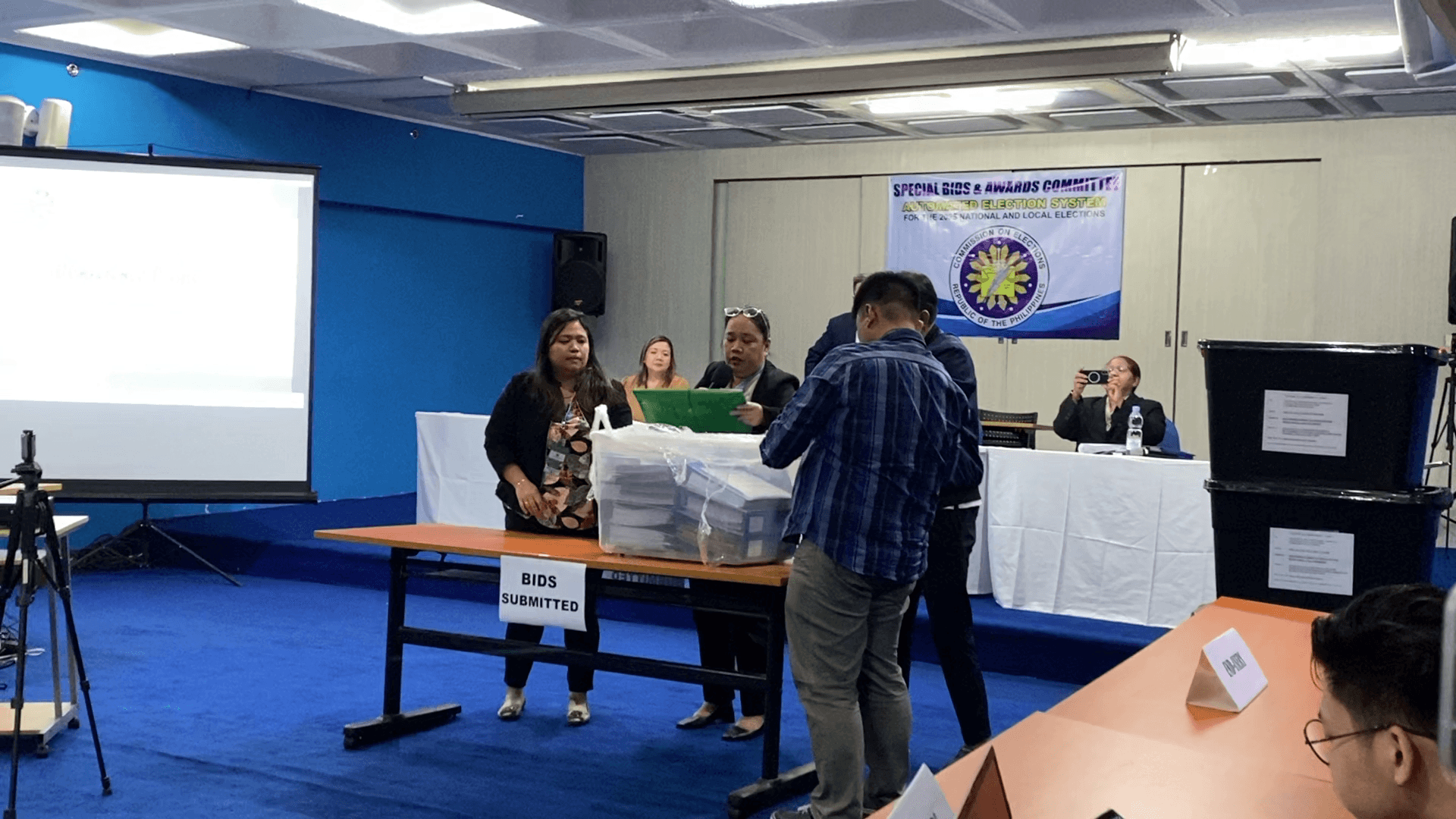SUMMARY
This is AI generated summarization, which may have errors. For context, always refer to the full article.

MANILA, Philippines – When the Commission on Elections (Comelec) procures goods and services, it usually conducts a competitive public bidding, which interested companies can participate in.
It is not always successful, just like on Thursday, December 14, when the Comelec declared a failure of bidding for the full automation system, with the transparency audit count (FASTrAC) project said to be worth P18.827 billion.
Officially, there was only one bidder, which was South Korean firm Miru Systems. However, even the company failed to make it through the process.
But why?
First, some documents were supposedly not translated.
A press release by the Comelec on Thursday said that some documents that support Miru’s Statement of Single Largest Completed Contract were not written in English.
According to the poll body, the Korean firm failed to meet a provision of Republic Act No. 9184, better known as the country’s procurement law.
Section 23.2 of the revised implementing rules and regulations (IRR) states:
- “In case of foreign bidders, the eligibility requirements or statements, the bids, and all other documents to be submitted to the [Bids and Awards Committee] must be in English. If the eligibility requirements or statements, the bids, and all other documents submitted to the BAC are in foreign language other than English, it must be accompanied by a translation of the documents in English. The documents shall be translated by the relevant foreign government agency, the foreign government agency authorized to translate documents, or a registered translator in the foreign bidder’s country; and shall be authenticated by the appropriate Philippine foreign service establishment/post or the equivalent office having jurisdiction over the foreign bidder’s affairs in the Philippines.”
Second, some words were said to be missing in one of the documents.
The Comelec said Miru’s Undertaking to Enter into a Joint Venture Agreement only wrote “jointly” instead of “jointly and severally liable.”
It asserted that the incomplete phrase clashed with the eligibility criteria of the revised IRR, specifically Section 23.4.1.1 (e):
- “The following shall be eligible to participate in the bidding for the supply of goods: persons/entities forming themselves into a joint venture, i.e., a group of two (2) or more persons/entities that intend to be jointly and severally responsible or liable for a particular contract.”
The lone bidder is a joint venture between Miru Systems and three local firms, namely:
- Integrated Computer Systems
- St. Timothy Construction Corporation
- Centerpoint Solutions Technologies Inc.
A failure of bidding declaration isn’t rare. It happens more often than one thinks.
It is a common occurrence that a company fails to submit all necessary documents during bidding.
For example, in the 2022 elections, Alabama-based company Pro V&V tried to secure the contract for automated election system (AES) certification services. It was the only company that participated during the first round of bidding, but it didn’t bag the contract right away due to a missing document. A second round of bidding was held, in which it finally got the deal.
There were also at least one failed bidding for the lease of new vote-counting machines, refurbishment of old VCMs, and supply of i-buttons for digital signature for the 2022 polls.
It’s not the end of the road for Miru Systems.
While the poll body junked Miru’s first bid proposal, the firm can still be the country’s next top election technology supplier.
Comelec spokesman Rex Laudiangco said the Special Bids and Awards Committee (SBAC) already conducted a mandatory review of the failed bidding, in accordance with the procurement law.
He added that the poll body might schedule a second round of competitive bidding by January 4, 2024.
Miru may cure its documentary deficiencies and submit another bid proposal by then, although it risks the possibility of having to compete with other companies that may have changed their minds by then and then decided to throw their hats into the ring.
The Canadian company Dominion Voting, for example, did not submit a bid proposal on Thursday, but it earlier asked the Comelec to move the schedule of the first round of bidding to January as it still had clarifications about the terms of reference.
Pivot International, which opted not to tender a bid on Thursday even though it purchased bidding documents in November, can also get back in the game.
The failure of bidding also buys Smartmatic more time to secure a Supreme Court order that would prevent the Comelec from barring the country’s perennial poll tech supplier from participating in the upcoming elections.
SBAC said on Thursday that it did not accept Smartmatic’s bid proposal even though the firm attempted a submission due to a November disqualification order, which cited the company’s alleged involvement in a 2016 bribery scheme. Smartmatic has repeatedly denied wrongdoing. – Rappler.com
Add a comment
How does this make you feel?





There are no comments yet. Add your comment to start the conversation.